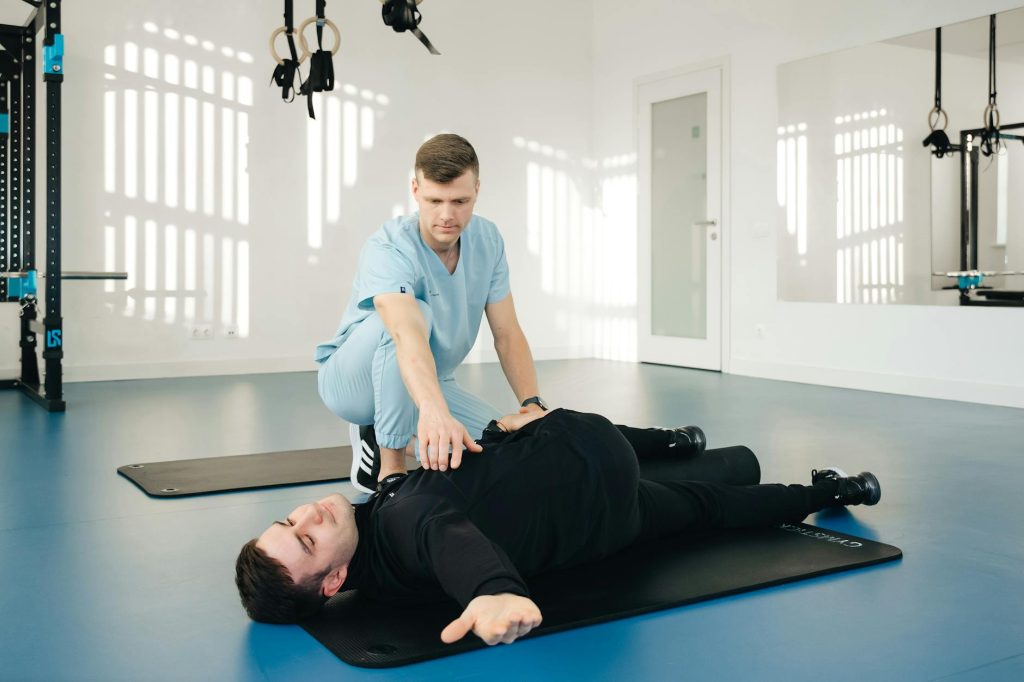When most people think about recovery, they picture therapy sessions, support groups, or medical treatment. These are all vital. But one powerful factor often gets overlooked: nutrition.
What you eat directly affects how your brain heals, how your body stabilizes, and how your emotions regulate during recovery. In fact, many experts now consider food to be one of the most important forms of medicine for the brain. From appetite rebuilding after detox to nutritional rehabilitation for long-term healing, understanding the role of food can transform recovery outcomes.
Why Nutrition Matters in Recovery
Addiction and trauma affect more than the mind—they change the body and nervous system too. Substances like alcohol, stimulants, and opioids deplete key nutrients. Eating disorders and chronic stress also disrupt appetite, digestion, and metabolic balance.
- Vitamin and mineral deficiencies
- Hormone imbalances
- Blood sugar swings that fuel cravings
- Neurotransmitter depletion (serotonin, dopamine, GABA)
- Weakened immunity and poor gut health
Without addressing these nutritional gaps, recovery feels like an uphill battle. Cravings intensify, mood becomes unstable, and energy crashes make it harder to stay committed to healing.
The Brain–Food Connection
The brain uses about 20 percent of the body’s energy. To function well, it relies on steady access to quality nutrients.
- Protein provides amino acids, the building blocks for neurotransmitters like dopamine and serotonin.
- Healthy fats (omega-3s, monounsaturated fats) support brain cell structure and reduce inflammation.
- Complex carbohydrates regulate blood sugar and feed gut bacteria that influence mood.
- Vitamins and minerals act as cofactors in neurotransmitter production and detoxification.
When the brain is nourished, mood stabilizes, stress resilience improves, and cravings decrease.
Key Goals of Nutrition in Recovery
-
1.Appetite Rebuilding
Detox and early recovery often suppress appetite or create chaotic eating patterns. Structured nutrition support helps individuals:- Re-establish hunger and fullness cues
- Eat regularly to stabilize blood sugar
- Reduce reliance on processed or comfort foods
-
2. Nutritional Rehabilitation
Many people in recovery have long-standing deficiencies. Nutritional rehabilitation includes:- Replenishing vitamins (B-complex, vitamin D)
- Supporting minerals (magnesium, zinc, iron)
- Restoring gut health with fiber and probiotics
- Building strength with adequate protein and calories
-
3. Craving Reduction
Balanced meals prevent blood sugar crashes that trigger cravings. Specific nutrients like tyrosine (supports dopamine) and tryptophan (supports serotonin) help reduce the urge to self-medicate. -
4. Mood Stabilization
Omega-3s, magnesium, and B vitamins play key roles in mood regulation. Research shows that nutrition-focused recovery programs report lower rates of depression and anxiety. -
5. Long-Term Brain Recovery
Healing the brain takes time. Steady, balanced nutrition supports neuroplasticity—the brain’s ability to rewire itself after trauma and substance use.
Common Nutritional Challenges in Recovery
- Alcohol use disorder often leads to deficiencies in B1 (thiamine), folate, and magnesium.
- Stimulant use (cocaine, meth) depletes dopamine and leaves the body malnourished.
- Opioid use disrupts digestion, leading to poor nutrient absorption.
- Eating disorders (anorexia, bulimia, binge eating) cause widespread nutrient imbalances.
- Chronic stress or trauma impacts cortisol, leading to blood sugar instability and gut inflammation.
Addressing these issues requires both individualized nutrition plans and trauma-informed care.
Therapeutic Approaches to Nutrition in Recovery
- Neuro-Nutritional Support
Targeted supplementation and brain-focused nutrition plans to replenish neurotransmitters and restore balance. - Nutritional Rehabilitation
A structured program that addresses deficiencies, rebuilds healthy eating patterns, and supports long-term healing. - Appetite Rebuilding Programs
Gentle approaches that help clients reconnect with hunger cues and establish trust in their body’s signals. - Nutrition and Harm Reduction
Meeting clients where they are, encouraging small but powerful dietary shifts that reduce harm and support stability. - Sleep and Nutrition Restoration
Aligning nutrition with circadian rhythms to improve rest, which is essential for recovery. - Sleep and Brain Recovery Programs
Combining nutrition with rest-focused strategies to strengthen cognitive healing.
Practical Nutrition Tips for Recovery
- Eat balanced meals every 3–4 hours. Include protein, complex carbs, and healthy fats.
- Stay hydrated. Dehydration often mimics cravings or anxiety.
- Limit sugar and processed foods. These spike and crash blood sugar, worsening mood swings.
- Incorporate omega-3s. Found in salmon, walnuts, flaxseeds, and supplements.
- Support gut health. Include fiber-rich foods, fermented foods, or probiotics.
- Consider supplementation. Work with a professional to restore vitamins and minerals depleted by substance use.
- Practice mindful eating. Slow down, notice flavors, and listen to body signals.
The Role of Nutritionists and Recovery Coaches
Professional support is key. Nutritionists trained in recovery can:
- Identify deficiencies through assessments
- Create personalized meal plans
- Provide education on food–mood connections
- Work alongside therapists, physicians, and coaches
This integrated care helps ensure that nutrition is not overlooked in the broader recovery process.
Nutrition as Relapse Prevention
One of the most overlooked aspects of relapse prevention is stabilizing the body. When blood sugar crashes, nutrient deficiencies, or fatigue hit, the brain seeks relief—often through substances.
Nutrition helps prevent relapse by:
- Keeping energy stable throughout the day
- Reducing emotional volatility
- Supporting better sleep
- Giving clients the resilience to handle triggers
Food is not a cure-all, but it is a foundation.
Stories of Transformation
Many clients in recovery describe profound changes when nutrition is prioritized:
- “I stopped craving alcohol when I started eating breakfast again.”
- “Once I took magnesium and omega-3s, my anxiety finally calmed down.”
- “Learning how to eat balanced meals gave me the stability I needed to stay sober.”
These are not just diet tips—they are life-saving interventions.
The Future of Recovery Includes Nutrition
As the recovery field evolves, nutrition is gaining recognition as a core element of treatment. More centers are hiring nutritionists, offering cooking classes, and providing supplementation as part of care. By combining therapy, community support, medical care, and nutrition, recovery becomes more sustainable and holistic.
The Bottom Line
Food is not just fuel—it is medicine for the brain. In recovery, proper nutrition helps reduce cravings, stabilize mood, rebuild strength, and support long-term healing. Whether through appetite rebuilding, nutritional rehabilitation, or brain-focused support, prioritizing nutrition gives individuals the best chance at lasting recovery.
Taking the Next Step
At TruPaths, we connect families and individuals with recovery options that include comprehensive nutrition support. Whether you are just beginning your journey or seeking long-term stability, food can be a powerful ally in healing.






